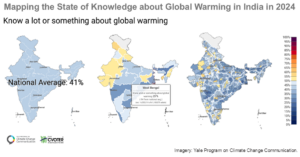 India is most vulnerable to the impacts of climate change. It has long been a key player in international climate negotiations and has begun implementing a diverse portfolio of policies nationally and within individual states to improve energy efficiency, develop clean energy sources, and prepare for the impacts of a changing climate. About 33 states and territories have also announced state-level action plans to address climate change. This recent national survey reveals that large majorities are worried about climate-related hazards, including severe heat waves (85%), droughts and water shortages (85%), and severe cyclones and floods (76% and 71%, respectively). Better understanding of public climate change knowledge, beliefs, risk perceptions, and policy supports decision-making.
India is most vulnerable to the impacts of climate change. It has long been a key player in international climate negotiations and has begun implementing a diverse portfolio of policies nationally and within individual states to improve energy efficiency, develop clean energy sources, and prepare for the impacts of a changing climate. About 33 states and territories have also announced state-level action plans to address climate change. This recent national survey reveals that large majorities are worried about climate-related hazards, including severe heat waves (85%), droughts and water shortages (85%), and severe cyclones and floods (76% and 71%, respectively). Better understanding of public climate change knowledge, beliefs, risk perceptions, and policy supports decision-making.
Jennifer Marlon, Anthony Leiserowitz, Jagadish Thaker, Emily Goddard, Liz Neyens, Swetha Kolluri, Seth Rosenthal, Jennifer Carman and Naga Raghuveer Modala. "Variations in climate opinions across India". Yale Program on Climate Change Communication. August 06, 2024. https://climatecommunication.yale.edu/... (Contributed by Gregory Autin).
Posted on 12/01/25
Recent Abstracts

Global Destination Sustainability Index 2021
The top 10 destinations are #1 Gothenburg, Sweden; #2 Copenhagen, Denmark; #3 Aarhus, Denmark; #4 Glasgow, UK; #5 Reykjavik, Iceland; #6 Tirol, Austria; #7 Lyon, France; #8 Zurich, Switzerland; #9 Bordeaux, France; and #10 Aalborg, Denmark. The GDS-Index is a performance improvement program to make the leisure tourism ...
Posted on 05/12/21
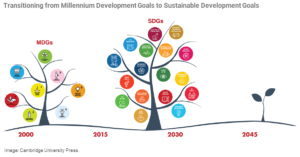
Design For Sustainable Development
This thematic collection aims at creating a forum for encouraging and debating the design for sustainable development. High-quality scientific contributions are needed to provide a coherent and widely accepted approach for designs that maximize the positive and minimize the negative environmental impacts while bringin ...
Posted on 04/12/21

“Overview: Putting Sustainable Development at the Core of Business Models.” In Development Co-Operation Report 2016 – The Sustainable Development Goals as Business Opportunities
The private sector holds a pivotal position in achieving the goals of the 2030 Agenda for sustainable development, which requires funding and co-operation on an unprecedented scale. This chapter addresses how international cooperation can help to put sustainable development at the core of business models and provides ...
Posted on 04/12/21

Does Private Equity Ownership Make Firms Cleaner? The Role Of Environmental Liability Risks
Private equity-backed firms increase pollution in locations and periods where environmental liability risk is relatively low while decreasing GHG emissions and pollution where regulatory risks increase. This study shows that private equity (PE) ownership leads to a 70% reduction in the baseline rate of toxic pollution ...
Posted on 03/12/21
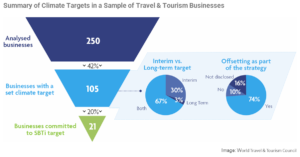
A Net Zero Roadmap for Travel & Tourism
This report supports stakeholders on the transition towards net-zero emissions by providing knowledge for the climate commitments of the private sector. It considers the most common roadblocks and areas for support as well as decarbonization levers for the achievement of net-zero targets. The report offers a decarbon ...
Posted on 02/12/21

Public International Funding of Nature-Based Solutions for Adaptation: A Landscape Assessment
Nature-based solutions for adaptation (NbSA) encompasses different types of activities, investments and approaches that seek to protect and restore nature and ecosystems. NbSA investments are fundamentally important in helping many countries address climate change to bring about economic development and other benefits ...
Posted on 02/12/21

Albrecht Voss: 2021 Hasselblad Masters Winner – Architecture
Albrecht Voss is the winner of Hasselblad Masters 2021 photo competition in the architecture category. The competition consists of 12 categories. Each entry must consist of three (3) photos in each category and each entry is judged on the three submitted images in that category. 60,000 photos were submitted. The Ha ...
Posted on 01/12/21
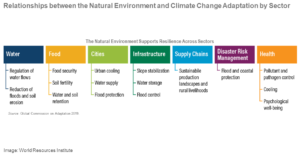
Nature-Based Solutions for Urban Hotel Real Estate
A 40% drop in natural capital per person has been reported over the past two decades while being systematically depleted. However, nature and its ecosystem services are at the center of the hospitality business proposition at the destination, where nature is a source of solutions to mitigate and adapt to climate chang ...
Posted on 01/12/21
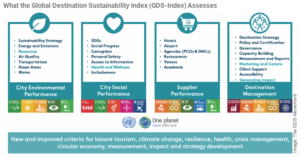
Global Destination Sustainability Index (GDS-Index) Benchmarking Methodology
The GDS-Index is a destination level program that measures, benchmarks and improves the sustainability strategy and performance of tourism and events destinations. Its purpose is to inspire, engage and enable destinations to become more regenerative, flourishing and resilient places to visit, where to meet, and thrive ...
Posted on 30/11/21
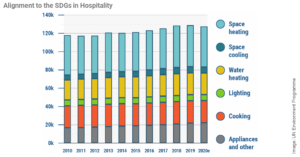
Sustainability in Hospitality
The forum explores ideas, strategies and solution for an industry facing increased environmental and societal challenges. Industry opinion leaders and experts share their thoughts, reactions and insights on the important issues and events that are affecting the global hospitality business. Its goal is to anchor susta ...
Posted on 29/11/21

Pathway to Net Positive Hospitality Raises Global Ambition for the Hospitality Sector
This initiative aims to enable every hotel to improve their impact, wherever they are on the transition towards sustainability. The sustainability framework accessible to the global hospitality industry will encompass four clear stages and practical tools to guide the industry towards a regenerative impact. The hospi ...
Posted on 29/11/21
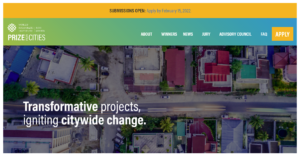
Prize for Cities
Incremental change is not putting communities on track for sustainability, equity and prosperity. Although successful sustainable change is happening, the solutions and successful efforts towards urban transformation are not identified and publicized. To right this, the WRI Ross Center Prize for Cities initiative spo ...
Posted on 28/11/21
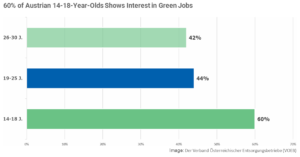
Green Jobs in der Abfallwirtschaft
Professions in the environmental sector – "green jobs " – are now quite popular among Austrians. In a recent study, 43% of respondents showed interest in a green job, as high as 60% among 14- to 18-year-olds. Waste and resource management is viewed as a crisis-proof job (46%) and a job with a purpose and benefit for ...
Posted on 28/11/21
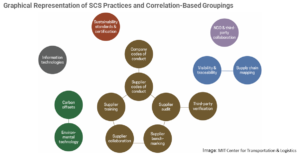
State of Supply Chain Sustainability 2021
This report reveals that company executives are the most significant source of pressure behind corporate commitments to supply chain sustainability (SCS). Given their central role in setting and steering strategies, this suggests that the drive toward supply chain sustainability is a long-term business trend. The rep ...
Posted on 26/11/21
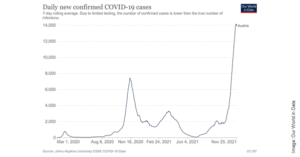
Selective Lockdowns Can Be Ethically Justifiable – Here’s Why
The unvaccinated are at a much greater risk of getting infected and spreading the coronavirus disease. They suffer the most severe symptoms and are the corona patients who occupy over 90% of the ICU beds. Even though they restrict individual freedoms, lockdowns are justifiable where necessary and proportionate to ach ...
Posted on 26/11/21

